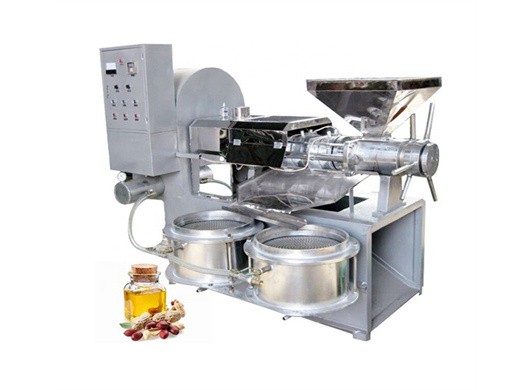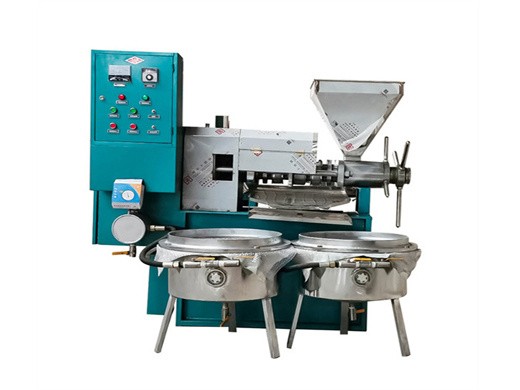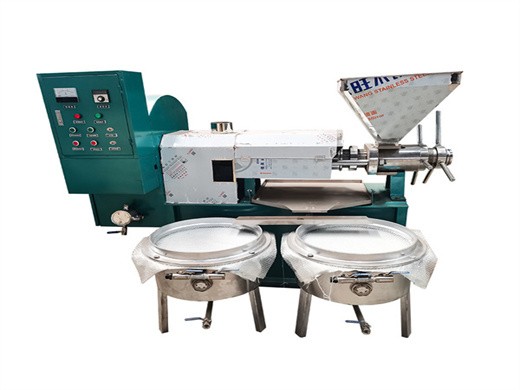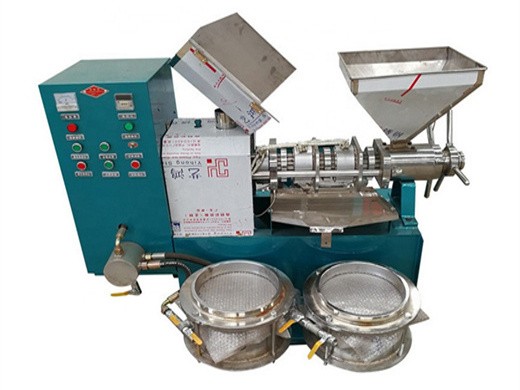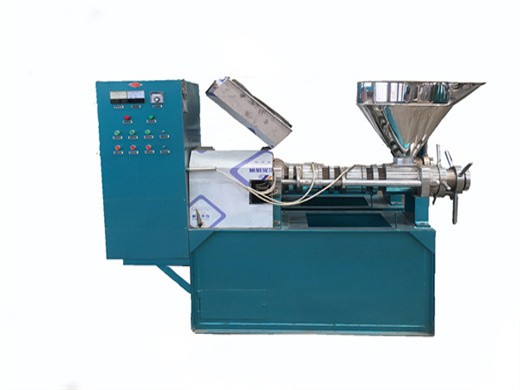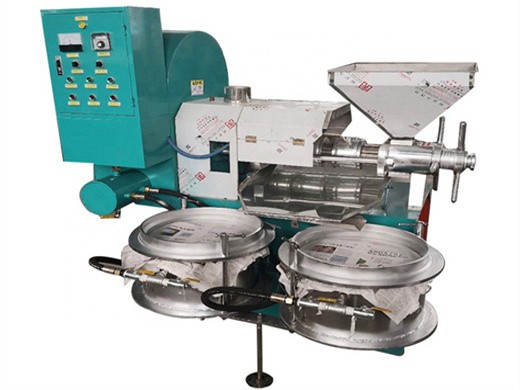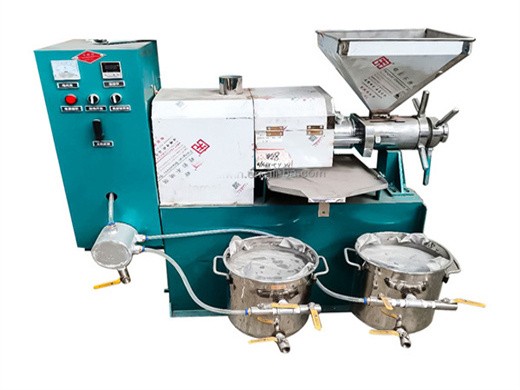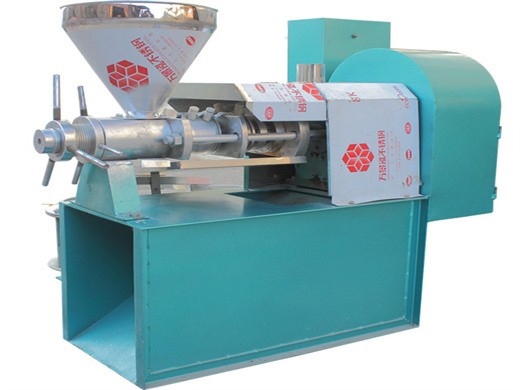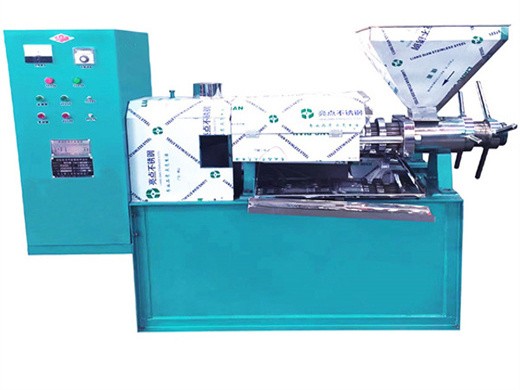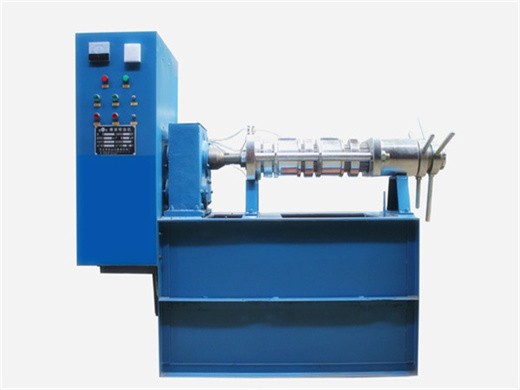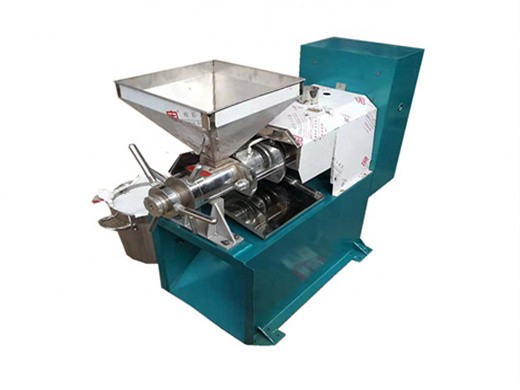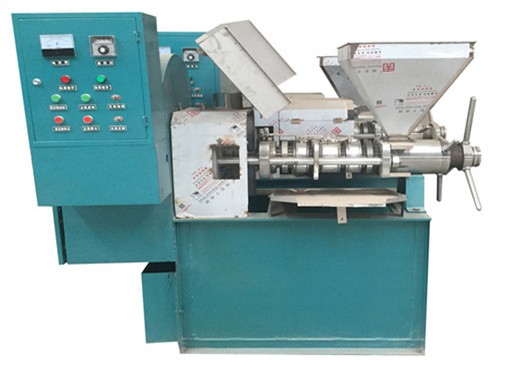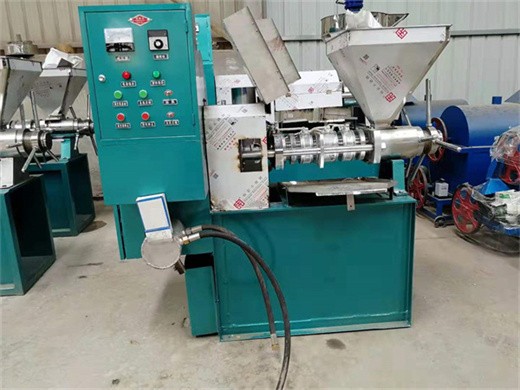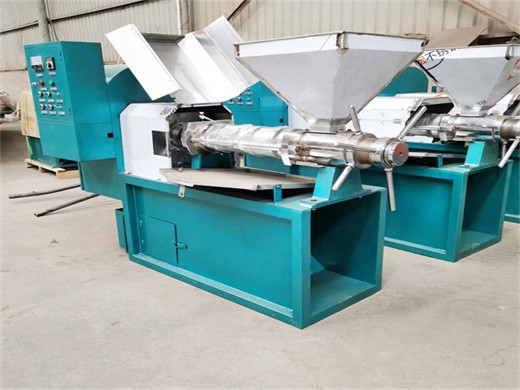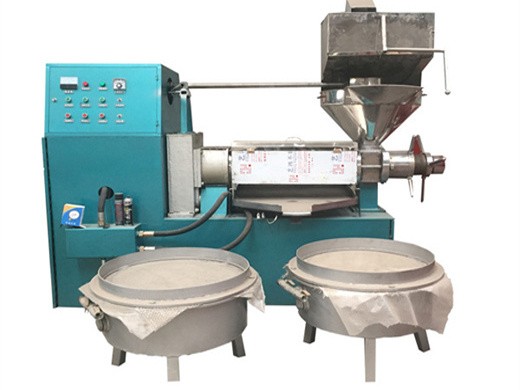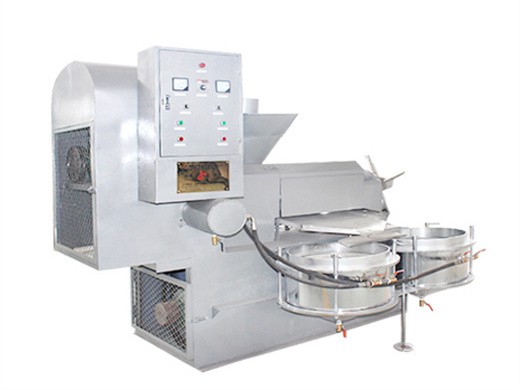Deodorization - Edible Oil Production
DEODORIZATION. The deodorization process of the last stage of chemical refining is carried out to remove undesirable taste and odour of the oil from the oil under high temperature and low pressure and by the effect of water vapour.
EDIBLE OIL PRODUCTION MACHINERY. SThe selection and proper use of mechanical equipment in edible oil production lines are very important. Because they directly affect the product quality. To obtain correct and high-quality products, necessary calibrations should be followed both during the process and at the output of the product.
Oil Deodorization for Palm Oil Refining Process
It creates a more bland oil by removing odiferous material and other minor undesired particles, in turn increasing its shelf life. It is commonly used in the process of refining palm oil. Detailed Oil Deodorization Process. In oil deodorization, the bleached oil is first deaerated then heated. It is then deodorized by using high pressure steam.
Forth Step of Vegetable Oil Refining Process. Deodorization Process is the forth step in vegetable oil refining which commences after finishing the bleaching. Deodorization holds a big impact on the refined oil quality and is often considered as the heart of the entire edible oil refining method.
Edible Oil Production Process - Edible Oil Production
edible oil production process The production of edible oil includes through all processes required to remove structure within the seeds and make oil suitable for sale . We specialize in many areas such as customer preferences, chemical knowledge, production acceleration techniques to perform these processes efficiently.
In current edible oil refining, deodorization is also the process in which free (nonesterifed) fatty acids (in the case of physical refining) and volatile contaminants are stripped and unwanted color pigments are degraded (heat bleaching).
Edible oil refinery plant and edible oil refining process
Generally speaking, deodorization process is the final stage in edible oil refining process. The decolorized oil is subjected to steam distillation under condition of high temperature and vacuum to remove bad smell, free fatty acids and other undesired minor components. 1. Deoxygenation section:
Palm Oil Refining Deodorization Section Introduction: Add the required antioxidant and flavor agent, and then cool the palm oil below 50 degrees Celsius and store it. The packing catcher separates such volatiles as FFA from the deodorizing system, and the separated liquid is FFA at low temperature of 60-75 degrees Celsius.
palm oil deodorization process - BEST Palm Oil Processing
Palm oil deodorization is the final process of edible palm oil refinery plant. It is a result of heating-crushing and heating extraction development. Odiferous material and other minor undesired particles are removed from the crude palm oil or palm kernel oil in the deodorization process of palm oil.
Edible Oil Production Line is a company that provides, machine and turnkey production line design, manufacturing and engineering services for edible oil production processes. EDIBLE OIL PRODUCTION Edible Oil Production Process
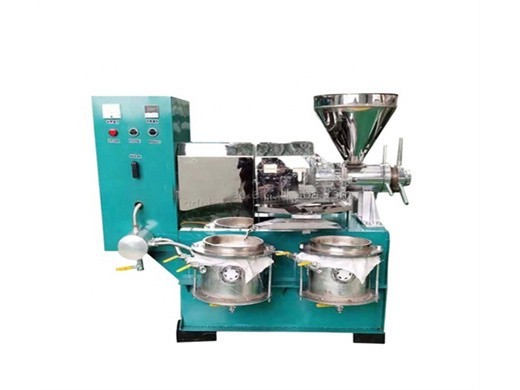
Edible oil refinery plant and edible oil refining process
Generally speaking, deodorization process is the final stage in edible oil refining process. The decolorized oil is subjected to steam distillation under condition of high temperature and vacuum to remove bad smell, free fatty acids and other undesired minor components. 1. Deoxygenation section:
GET PRICE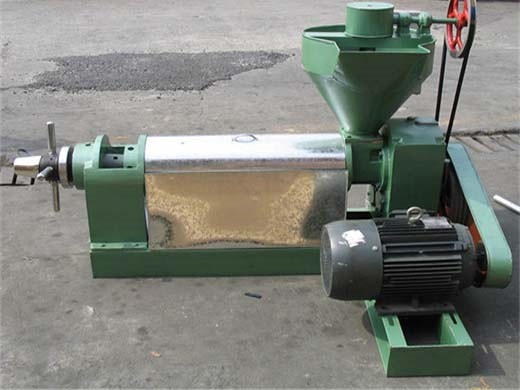
Packaging - Edible Oil Production
Used for packaging of edible oil. They ensure a long shelf-life and are sturdy. Edible oil are packed in tinplate containers of different capacities – 500g, 1kg, 2kg, 5kg and 15kg. The shape of the container may be round or square.
GET PRICE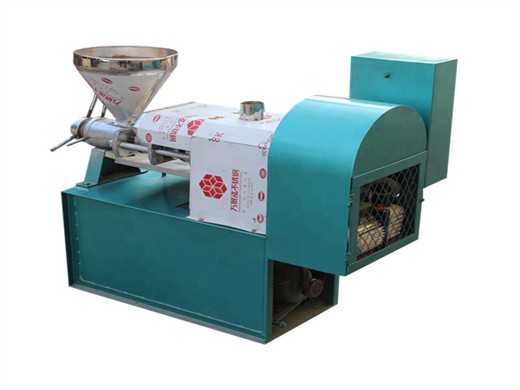
Palm Oil Refining Processing Machinery - Find Edible Oil
Process Flow chart: Crude Palm Oil (CPO) is mainly further processed into edible oil for food purpose. To meet the international industry’s standards for edible oil, the crude palm oil produced by oil mills should be refined in palm oil refinery plan t. Palm oil refinery process mainly includes palm oil degumming, palm oil deacidification, palm oil bleaching and palm oil deodorization.
GET PRICE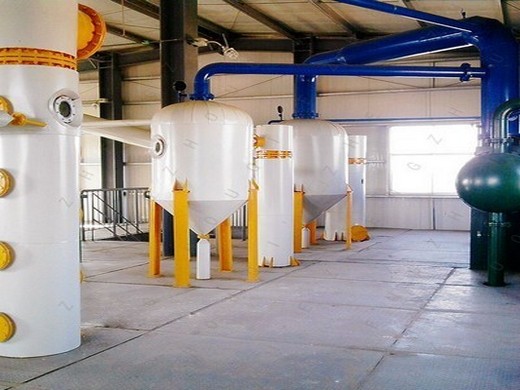
Oil Processing Plant, Oil Processing, Edible Oil
Chemical Refining in Oil Processing. In Chemical Refining, Vegetable Oil is treated with caustic lye for separation of free fatty acids from oil. This is a conventional process that can be applied to all oils. A byproduct of alkali refining is soap-stock, which is used for manufacture of low quality washing soap.
GET PRICE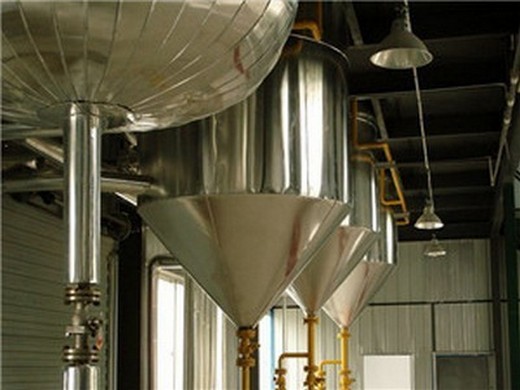
Alfa Laval - Edible oil refining process systems
Depend on Alfa Laval to provide solutions to key challenges you face and optimize your edible oil processes based on the crude oils available. Whether you need complete systems to refine for edible oils or components and equipment to upgrade your existing process lines, you can rest assured we have your back.
GET PRICE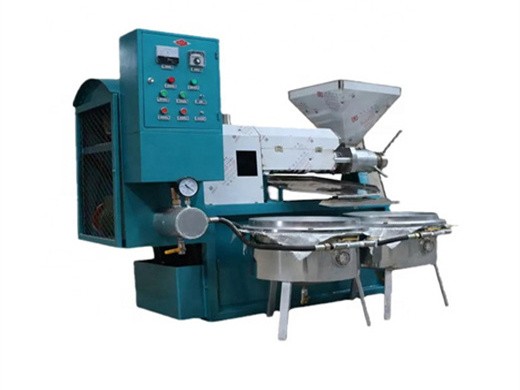
edible oil processing – Oil Mill Machinery
Deacidification is also the main process of oil refining. Chemical or physical method can be used to remove free fatty acid in the oil. Alkali refining (neutralization) is often used in oil plant to remove such impurities in oil to lay a good foundation for oil decolorization, deodorization, hydrogenation and deep processing of oil products.
GET PRICE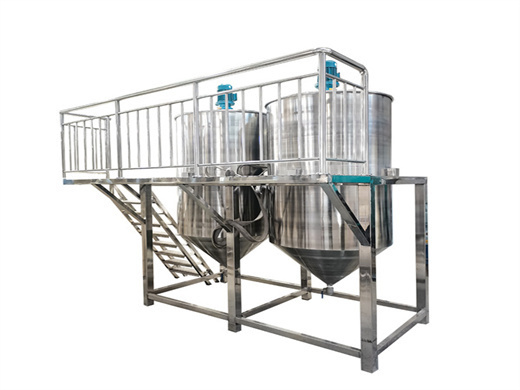
high quality what is oil palm processing machine in venezuela
Crude palm oil and the DOBI Page 1 of 5 Use of the. quality by ensuring that they start with a high-quality crude palm oil(CPO). This paper illustrates the use of the DOBI to characterise the quality of CPO and covers the following Keck Seng (M) Berhad operate an integrated oil-palm plantation, palm fruit processing mill and palm oil refinery.
GET PRICE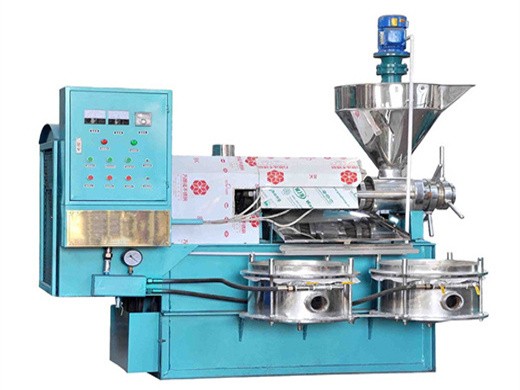
Alfa Laval - SoftColumn
Deodorization is such a crucial part of edible fats and oils processing that the only way to really get ahead – and stay there – is to use the latest technology and the best equipment. Alfa Laval’s patented breakthrough in applying thin-film technology to modern deodorization processes opens up important opportunities for taking your ...
GET PRICE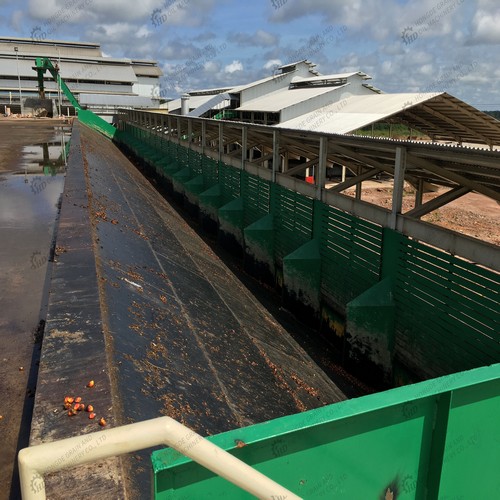
Alfa Laval - Edible oil refining process systems
Depend on Alfa Laval to provide solutions to key challenges you face and optimize your edible oil processes based on the crude oils available. Whether you need complete systems to refine for edible oils or components and equipment to upgrade your existing process lines, you can rest assured we have your back.
GET PRICE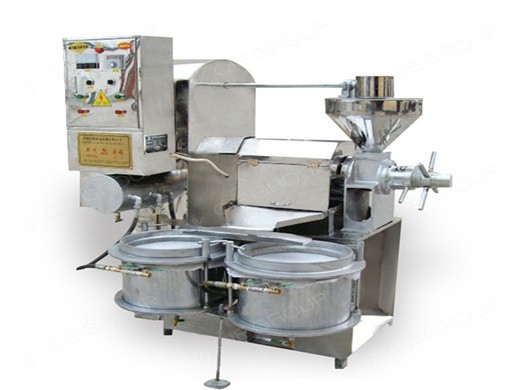
Cottonseed Oil Processing Plant - Oil Press Machinery
Cottonseed contains gossypol, which is bad for human especially for men. So we cannot eat cottonseed oil unless cottonseed oil is refined. Complete Cottonseed Oil Processing Plant from Pre-Pressing, Extraction to Refinery is very important.
GET PRICE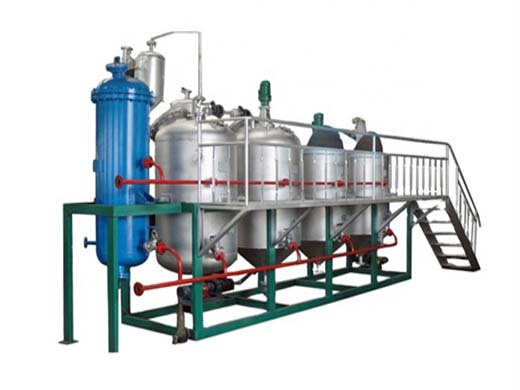
Odor Control in Edible Oil Processing
Deodorization is the last major refining step in the processing of most edible oils. Although various commercial schemes are available, all deodorization systems involve the basic principles of steam stripping the oil under high vacuum and temperatures to drive off various volatile compounds.
GET PRICE
The importance of steam deodorization in edible oil
Steam deodorization is one of the main steps in edible oil refining process. Generally speaking, there is still a little odor substance after degumming and deacidification steps, and residual white clay and solvent(n-hexane) smell after decolorization step.
GET PRICE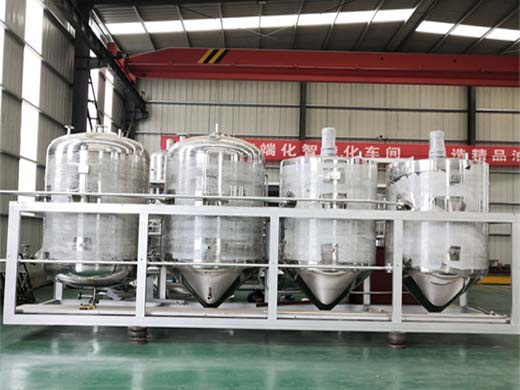
Deodorization Systems Market by Edible Oil (Palm, Soybean
The Deodorization Systems Market is Projected to Grow at a CAGR of 4.9%. The deodorization systems market is projected to grow at a CAGR of 4.9%; the key drivers include growth in the edible oils industry, growing demand for higher nutritional value in edible oils, and the technological developments to overcome process limitations.
GET PRICE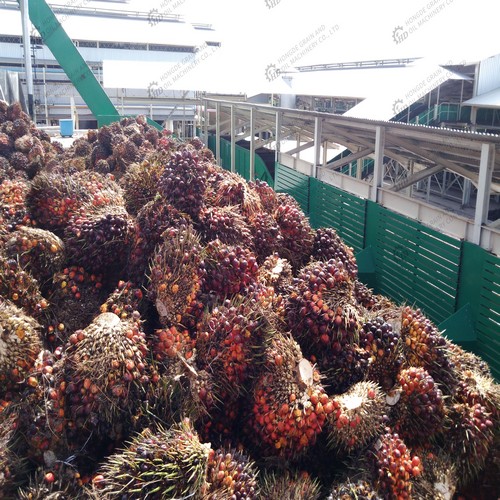
Deodorization Process and Deodorizer Tower for Edible Oil
Deodorization Process for Edible oIl Refining Deodorization is primarily a high-temperature, high-vacuum, steam-distillation process. To produce a high-quality fuinished product,each deodorizer installation must deaerate the oil, heat the oil, sream an d strip the oil, and cook the oil all with zero exposure to air.
GET PRICE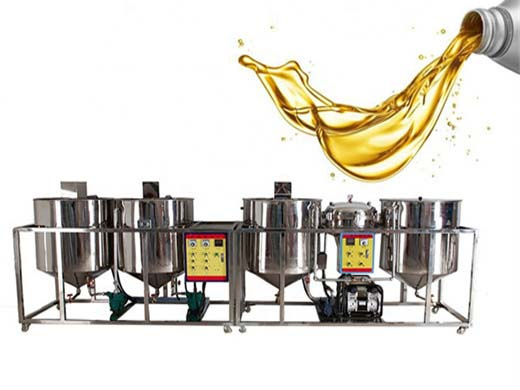
Alfa Laval - Edible oil refining process systems
Our edible oil process line portfolio. After oil clarification (for pressed oils), the oil can be refined as shown below. The crude oil is then transferred either to special degumming in the physical refining route, to water degumming, or directly to neutralization in the chemical refining route. In the chemical refining route, free fatty acids undergo a reaction to create aqueous soap, which is removed from the oil in centrifuges.
GET PRICE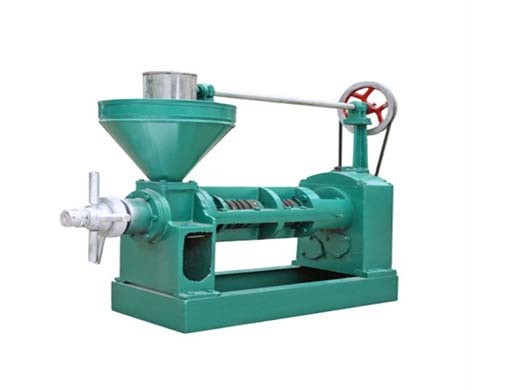
Manufacturer, supplier of Soybean oil processing machine
Application of soybean oil processing machine: Soybean oil processing machine designed by our factory is the advanced edible oil processing machinery, characterized by the high oil output rate with good quality, simple design, easy to use and continuous operation.
GET PRICE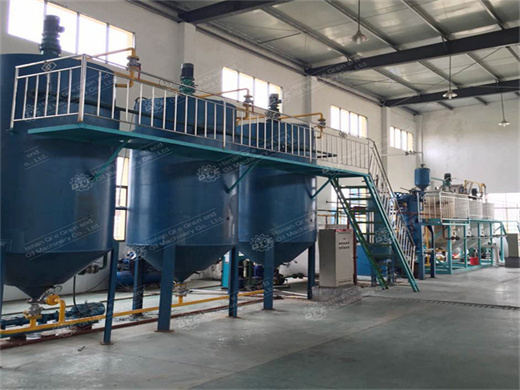
Edible Oil Refining Processing Line
Edible Oil Refining Processing Line: 1. Decoloring tank: bleach pigments from oil. 2. Deodorizing tank: remove the un-favored smell from decolorized oil. 3. Oil furnace: provide enough heat for the refining sections which need high temperature of 280℃. 4. Vacuum pump: provide high pressure for bleaching, deodorization which can reach 755mmHg or more. 5.
GET PRICE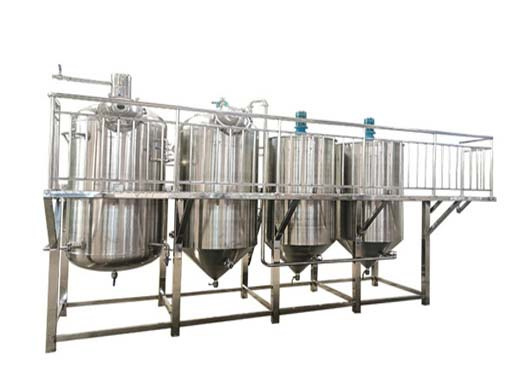
Why Refining Edible Oil? - Edible Oil Expeller Machinery
With the high degree of automation, the oil refining machinery can refine 20 kinds of edible oil, such as soybean oil, rape seeds oil, peanut oil, etc. in a small production line or in large oil plant.
GET PRICE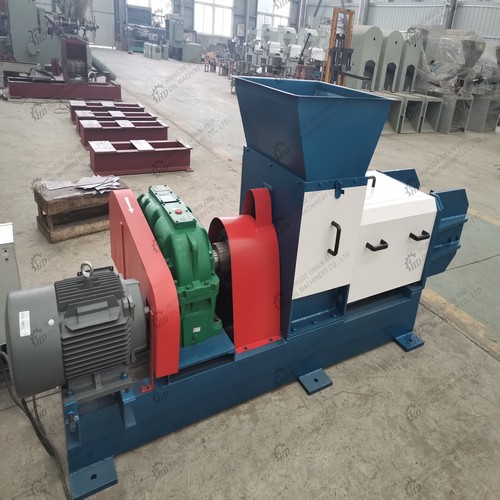
Vegetable Oil Refinery Plant, Vegetable Oil Refinery Plant
Vegetable Oil Refinery Plant : Introduction to Vegetable Oil Refinery Plant: Vegetable oil and fat resources are essential to mankind as a source of nutrient and industrial raw materials. Crude vegetable oil obtained from various oil milling units is further refined before use for edible purposes.
GET PRICE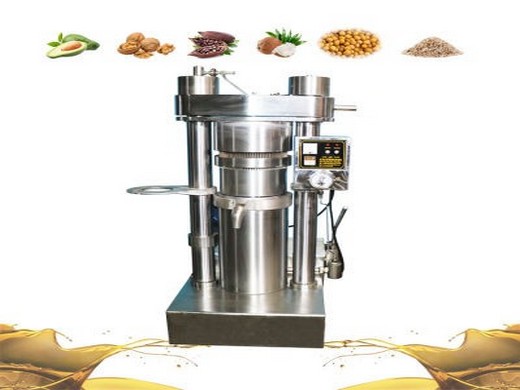
Deodorization of edible oil
Deodorization is a high-temperature, high-vacuum steam-distillation process to remove volatile, odoriferous materials present in edible fats and oils. This paper reviews and discusses the effect of temperature vs time, vacuum vs stripping steam, the importance of air exclusion, heating media, and flavor reversion.
GET PRICE